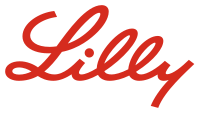
Photo from wikipedia
Background Ixekizumab (IXE), a high affinity monoclonal antibody that selectively targets interleukin-17A, has been shown to be superior to placebo (PBO) in improving signs and symptoms of psoriatic arthritis (PsA)… Click to show full abstract
Background Ixekizumab (IXE), a high affinity monoclonal antibody that selectively targets interleukin-17A, has been shown to be superior to placebo (PBO) in improving signs and symptoms of psoriatic arthritis (PsA) in Phase 3 trials1, 2. Objectives To assess the safety of IXE in patients with active PsA using data pooled from 3 (SPIRIT-P1, -P2, and -P3) Phase 3 trials. Methods SPIRIT-P11 and -P22 are double-blind trials; patients were randomised to PBO, adalimumab (ADA; active reference arm; SPIRIT-P1 only),1 or 80 mg IXE every 4 (Q4W) or 2 (Q2W) weeks. PBO and ADA patients were re-randomised to either IXEQ4W or IXEQ2W for the open-label extension period (Weeks 24–156); patients who initially received IXE remained on their original dose. SPIRIT-P3 is an open-label (Week 36–64) trial where patients received IXEQ2W followed by a randomised withdrawal period. In all the 3 trials, patients received a 160 mg loading dose of IXE. Safety data were integrated from all IXE-treated patients (defined as all patients receiving ≥1 dose of IXE) included in SPIRIT-P1, -P2, and -P3. Exposure-adjusted incidence rates (IRs) per 100 patient-years (PY) were reported for adverse events (AEs). Results Overall, 1118 patients received IXE (total exposure=1373.4 PY). Four deaths (0.3/100PY) were reported (cerebrovascular accident, cardio-respiratory arrest, drowning, and pneumonia) (Table). The most common treatment-emergent AEs (TEAEs) were injection-site reaction (ISRs), upper respiratory tract infection, and nasopharyngitis; IRs for TEAEs, including ISRs, decreased overtime. There was no clinically meaningful increase in IRs of serious AEs, infections, serious infections, hypersensitivity, and major adverse cardiovascular events (MACE) with longer IXE exposure (Table). IR for serious infections was low (1.2/100PY). Serious infections included pneumonia (0.2/100PY), lower respiratory tract infection, and esophageal candidiasis (0.1/100PY each). No case of active tuberculosis (TB) was reported, but 1 case of latent TB was deemed as serious due to hospitalisation for testing to exclude active TB. Opportunistic infections were limited to oral and esophageal Candida and localised herpes zoster. There were no reports of deep organ or bloodstream Candida infections. No anaphylaxis was reported, but 1 patient (0.1/100PY) experienced angioedema. No patient had infections temporally associated with Grade≥2 neutropenia. Nine patients (0.7/100PY) had MACE. One case (0.1/100PY) each of Crohn’s disease (with prior history of irritable bowel syndrome) and ulcerative colitis were reported. However, none of the 12 patients with pre-existing inflammatory bowel disease experienced an exacerbation with IXE.Abstract SAT0348 – Table 1 Exposure-Ajusted Incidence Rate of TEAEs at 12-Week Intervals up to Week 96 (All PsA Ixekizumab Exposures Integrated Analysis Set: SPIRIT-P1, SPIRIT-P2, and SPIRIT-P3). Conclusions The safety profile of IXE in patients with PsA is consistent with previous reports as derived from the analysis of the three SPIRIT trials from a large cohort of patients. No new safety signals were identified with longer IXE treatment exposure. References [1] Mease PJ, et al. ARD2017;76:79. [2] Nash P, et al. Lancet2017;10:2317. Disclosure of Interest P. Goupille Consultant for: Abbvie, BMS, Biogaran, Celgene, Eli Lilly and Company, Janssen, MSD, Novartis, Pfizer, UCB, E. Roussou Grant/research support from: Pfizer, MERCK, Eli-Lilly, TAKEDA, UCB, G. Burmester Grant/research support from: Eli Lilly and company, Consultant for: Novartis, Pfizer, Janssen, Eli Lilly, P. Mease Grant/research support from: AbbVie, Amgen, Bristol-Myers Squibb, Celgene, SUN, Eli Lilly, Genentech, Janssen, Merck, Novartis, Pfizer, UCB, Consultant for: AbbVie, Amgen, Bristol-Myers Squibb, Celgene, SUN, Eli Lilly, Genentech, Janssen, Merck, Novartis, Pfizer, UCB, Speakers bureau: AbbVie, Amgen, Bristol-Myers Squibb, Celgene, Novartis, Eli Lilly, Genentech, Janssen, Pfizer, and UCB, A. B. Gottlieb Grant/research support from: Janssen, Incyte, Consultant for: Celgene Corp., Bristol Myers Squibb Co., Beiersdorf, Inc., Abbvie, UCB, Novartis, Incyte, Lilly, Reddy Labs, Valeant, Dermira, Allergan, Sun Pharmaceutical Industries, S. Garces Shareholder of: Eli Lilly and Company, Employee of: Eli Lilly and Company, O. Benichou Shareholder of: Eli Lilly and Company, Employee of: Eli Lilly and Company, D. Adams Shareholder of: Eli Lilly and Company, Employee of: Eli Lilly and Company, W. Xu Shareholder of: Eli Lilly and Company, Employee of: Eli Lilly and Company, P. Nash Grant/research support from: AbbVie, Amgen, Bristol-Myers Squibb, Celgene, Eli Lilly and Company, Hospira, Janssen, MSD, Novartis, Pfizer, Roche, Sanofi, UCB, Consultant for: AbbVie, Amgen, Bristol-Myers Squibb, Celgene, Eli Lilly and Company, Hospira, Janssen, MSD, Novartis, Pfizer, Roche, Sanofi, UCB, Speakers bureau: AbbVie, Amgen, Bristol-Myers Squibb, Celgene, Eli Lilly and Company, Hospira, Janssen, MSD, Novartis, Pfizer, Roche, Sanofi, UCB
Journal Title: Annals of the Rheumatic Diseases
Year Published: 2018
Link to full text (if available)
Share on Social Media: Sign Up to like & get
recommendations!